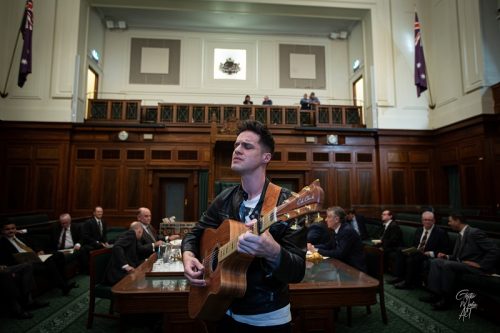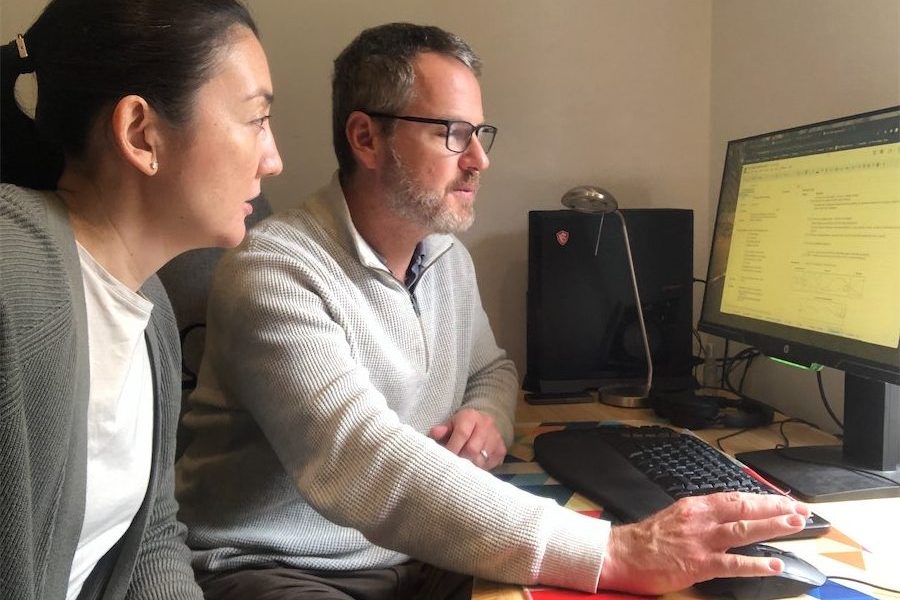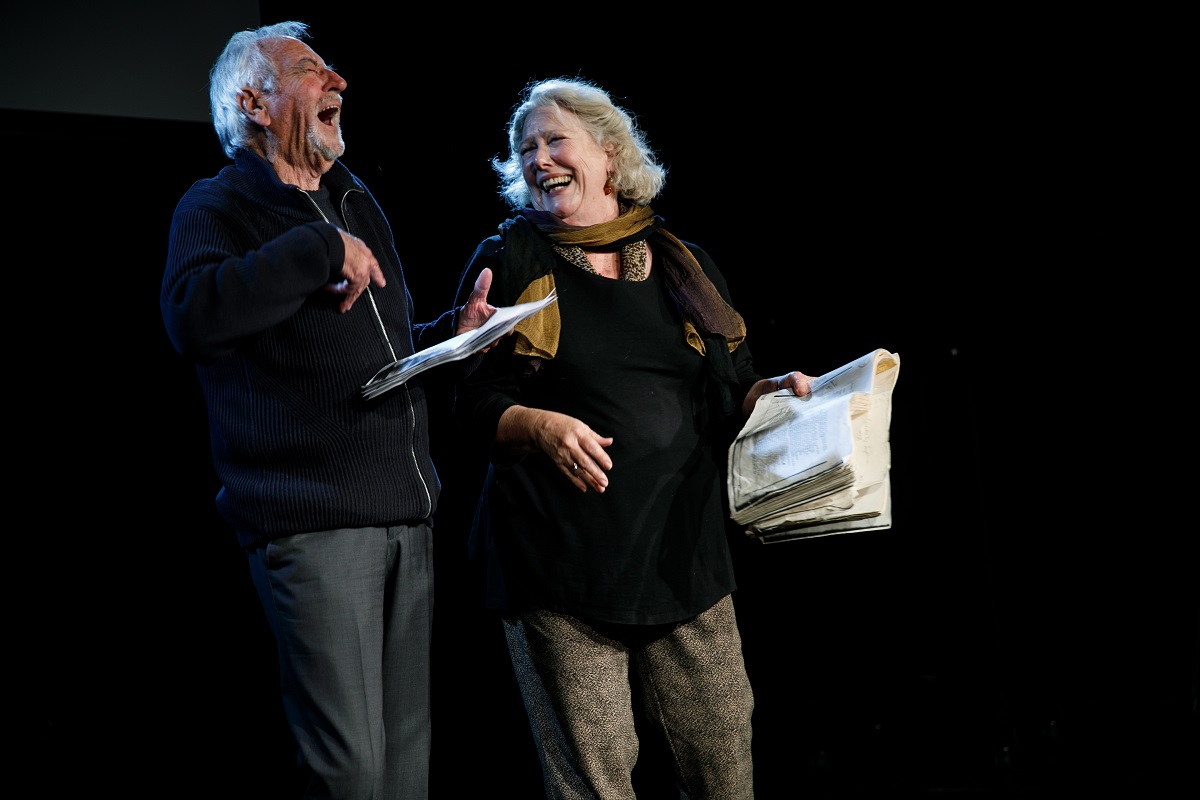
EVEN as the drums of war are beating inside the heads of some political players in Australia, the drums of peace appear to be beating in the arts world — and the Vietnam War has a lot to do with it.
Coming up at the Courtyard Studio on May 12-14 is Bernard Clancy’s new play, “Foxholes of the Mind”, which looks into the life of a Vietnam veteran suffering from PTSD.
Then from May 20 to 22 at Canberra Theatre Playhouse, Quantum Leap Ensemble will perform “Rebel Then.Now.When?” the first third of which draws its inspiration from anti-Vietnam protests.

Finally, on June 5 and 6, perfectly timed for the 3rd Battalion Royal Australian Regiment’s 50th anniversary, will be Chris Latham’s epic ”Vietnam Requiem” in Llewellyn Hall.
But before all that, Canberra writer and director Peter Wilkins, supported by The National Vietnam Veterans Association, the Department of Veterans Affairs, had written the script for a unique verbatim theatre work, ”The Deadly Game of Marbles”.
Wilkins had invited “CityNews” along to an “event” in the House of Representatives chamber at Old Parliament House and, short of time, I failed to read his email properly.
It was thus a “time warp” moment when I arrived at the “green” chamber to see a lot of blokes with short back and sides, (no women) respectably dressed in suits of the 1960s and talking the political talk. They turned out to be actors, dressed by costume designer Anna Senior.

Wilkins, joined by Joe Woodward from Shadow House Pits and executive producer Bill Moss had engaged director Goldele Rayment to stage the dramatic recreation of real-life events of November 1964 in the old house for an important veteran’s celebration.
It’s a play people may never see again, unless the Museum of Australian Democracy at Old Parliament House takes a special interest in it, since it was designed specifically for the space.
”The Deadly Game of Marbles” was a piece of verbatim theatre, intended by Wilkins as a true representation of the debate leading up to conscriptions of young Australians into the Vietnam conflict and taken directly from the Hansard transcripts of the National Service Bill Debate, or adapted from the facts expressed in the transcripts.
And the actors? I spotted a couple of ACT drama teachers there, one playing Arthur “Cocky” Calwell, and another a writer I’d engaged in the past. Others were from Wilkins’ “Acting for the fun of it” classes.
All of them eschewed theatre fireworks and mimicry, for a more toned-down recreation of the debate.

The only ones who attempted any verisimilitude was Ian Russell playing Labor’s rising star, Gough Whitlam, as he captured some of his cadences and Mike Smith who made a meal of “Billy” McMahon’s aggressive stye of the house floor.
The action of the one-hour play takes place during the National Service Bill Debate of 1964, in the office of the US Defence Secretary, Prime Minister Sir Robert Menzies’ office, the Members’ Bar and the House of Representatives Chamber of the Parliament of Australia in 1964.
Apart from the singers, Katerina Smalley and singer-composer Jay Cameron, who provided a poignant contemporary commentary, all characters were based on real people.
And what a rogue’s gallery it was — US Secretary of Defence Robert McNamara, Robert Menzies, William McMahon, Clyde Cameron, Arthur Calwell, Harold Holt, Alan Fraser, Don Chipp, Doug Anthony, Ian Sinclair, and as John McLeay Senior Speaker of the House.
The marbles of the title were those to be used in the government’s proposed lottery, which would young Australians conscripted to the Vietnam War in a ballot based on date of birth.
“I could have shielded him from all of this… If he were only born one day before,” Smalley sang in the role of the universal mother.
At the end of the hour-long performance, the 1964 vote was taken — and the young men went to war!
Who can be trusted?
In a world of spin and confusion, there’s never been a more important time to support independent journalism in Canberra.
If you trust our work online and want to enforce the power of independent voices, I invite you to make a small contribution.
Every dollar of support is invested back into our journalism to help keep citynews.com.au strong and free.
Thank you,
Ian Meikle, editor




Leave a Reply